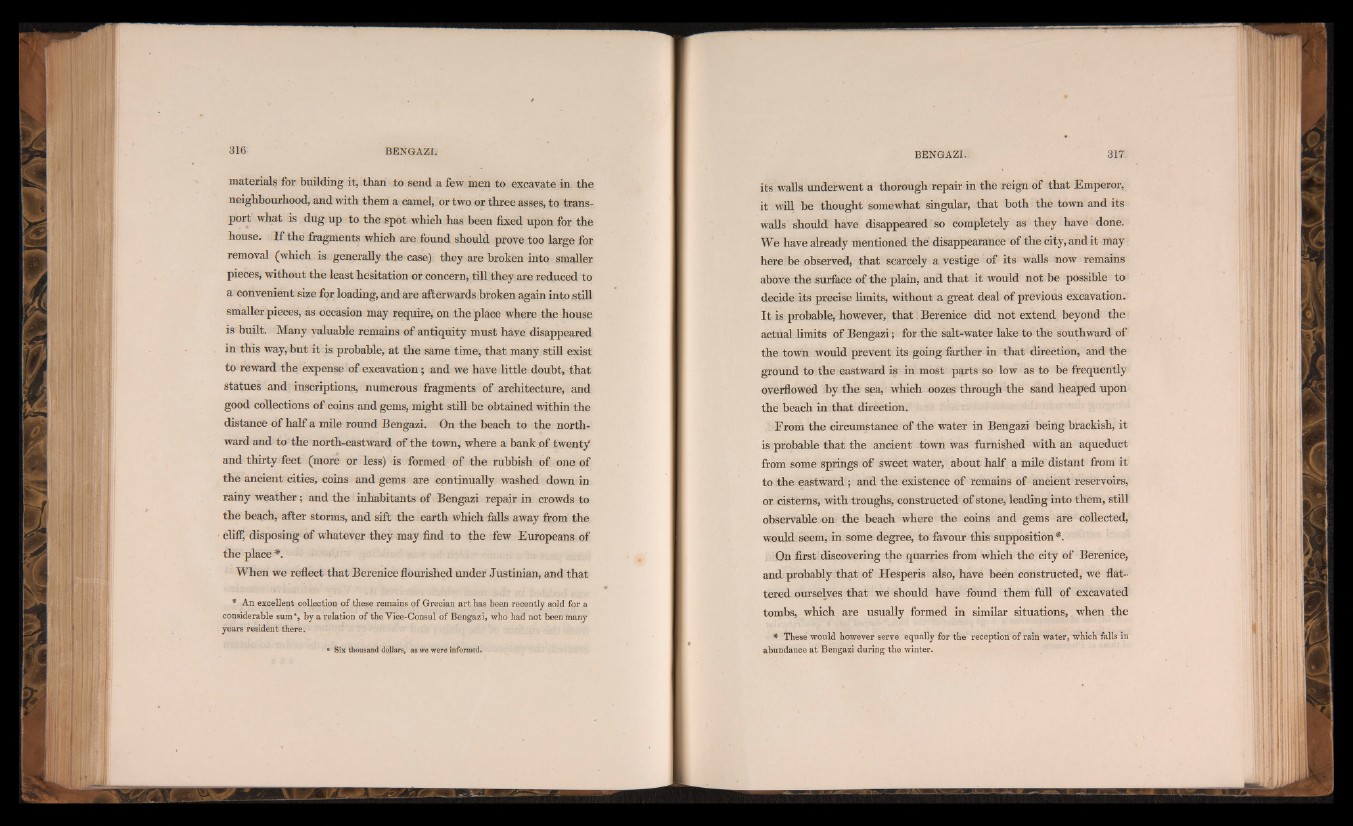
materials for building it, than to send a few men to excavate in the
neighbourhood, and with them a camel, or two or three asses, to transport
what is dug up to the spot which has been fixed upon for the
house. If the fragments which are found should prove too large for
removal (which is generally the case) they are broken into smaller
pieces, without the least hesitation or concern, till they are reduced to
a convenient size for loading, and are afterwards broken again into still
smaller pieces, as occasion may require, on the place where the house
is built. Many valuable remains of antiquity must have disappeared
in this way, but it is probable, at the same time, that many still exist
to reward the expense of excavation; and we have little doubt, that
statues and inscriptions, numerous fragments of architecture, and
good collections of coins and gems, might still be obtained within the
distance of half a mile round Bengazi. On the beach to the northward
and to the north-eastward of the town, where a bank of twenty'
and thirty feet (more or less) is formed of the rubbish of one of
the ancient cities, coins and gems are continually washed down in
rainy weather; and the inhabitants of Bengazi repair in crowds to
the beach, after storms, and sift the earth which falls away from the
cliff, disposing of whatever they may find to the few Europeans of
the place *.
When we reflect that Berenice flourished under Justinian, and that
* An excellent collection of these remains of Grecian art has been recently sold for a
considerable sum“, by a relation of the Vice-Consul of Bengazi, who had not been many
years resident there.
* Six thousand dollars, as we were informed.
its walls underwent a thorough repair in the reign of that Emperor,
it will be thought somewhat singular, that both the town and its
walls should have disappeared so completely as they have done.
We have already mentioned the disappearance of the city, and it may
here be observed, that scarcely a vestige of its walls now remains
above the surface of the plain, and that it would not be possible to
decide its precise limits, without a great deal of previous excavation.
I t is probable, however, th a t: Berenice did not extend beyond the
actual limits of Bengazi; for the salt-water lake to the southward of
the town would prevent its going farther in that direction, and the
ground to the eastward is in most parts so low as to be frequently
overflowed by the sea, which oozes through the sand heaped upon
the beach in that direction.
From the circumstance of the water in Bengazi being brackish, it
is probable that the ancient town was furnished with an aqueduct
from some springs of sweet water, about half a mile distant from it
to the eastward ; and the existence of remains of ancient reservoirs,
or. cisterns, with troughs, constructed of Stone, leading into them, still
observable on the beach where the coins and gems are collected,
would seem, in some degree, to favour this supposition*.
On first discovering the quarries from which the city of Berenice,
and probably that of Hesperis also, have been constructed, we flattered
ourselves that we should have found them full of excavated
tombs, which are usually formed in similar situations, when the
* These would however serve equally for the reception' of rain water, which falls in
abundance at Bengazi during the winter.